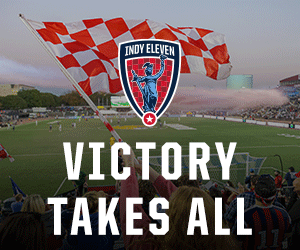By Kelly Patrick Slone
If you’ve been interviewed for a job, gotten paid for your work or attended a meeting about company health benefits, you’ve worked with someone performing human resources functions.
HR functions are associated with many different job titles — payroll manager, recruiting manager, employee relations director, compensation and benefits manager and training and development specialist, just to name a few — and HR tasks, like cutting paychecks, can fall under the umbrella of many departments, such as accounting or finance, that aren’t specifically dedicated to human resources work.
Since HR functions are wrapped up in so many parts of business, the HR market fluctuates with the economy. Keisha Underwood, vice president of membership with IndySHRM — the Indianapolis affiliate of the national Society for Human Resources Management (SHRM) — said changes in a company’s bottom line are sometimes first reflected in HR.
“When company budgets start getting tight, HR is the area where you might cut back,” she said. “Instead of having two or three people doing HR tasks, you might ask one or two people to take on a bigger workload and cut down the headcount.”
Outsourcing HR functions is another way companies try to control costs.
“Sometimes you’ll see the expense of outsourcing is less than doing it in house,” Underwood said. “A lot of times you’ll see that with recruiting, like using a staffing agency. Another place you’ll maybe see outsourcing is in payroll or benefits administration. One area of HR that’s sticky is employee relations. That’s when there are performance issues or someone needs to be terminated. Those are often-times better handled in-house, just because of the understanding of the business and the dynamics of operations.”
While lean times could call for leaner HR departments, the same philosophy works in times of feast, not just times of famine. According to the U.S. Bureau of Labor Statistics (BLS), for human resources managers and human resources specialists, “employment growth largely depends on the performance and growth of individual companies. As new companies form and organizations expand their operations, they will need more human resources managers to oversee and administer their programs.”
With the U.S. in the midst of an economic recovery, BLS says, employment of human resources managers is projected to grow 9 percent from 2014 to 2024, faster than the average for all occupations, and employment of human resources specialists is projected to grow 5 percent from 2014 to 2024, about as fast as the average for all occupations.
MANY HATS
But professionals within HR say their roles aren’t quite so straightforward and often go much deeper.
For Steven Jones, a human resources VP with health care giant IU Health, HR entails looking at the big picture.
“HR in my mind is really about, what kind of legacy are you going to leave? How do you help prepare the next generation of workers to come into your organization?”
But at the same time, the vision for the future can’t overshadow what’s right in front of you, Jones says.
“Building relationships is critical to the success of any HR professional. If the only thing I know about a team member is what they do for eight to 12 hours a day (at work), I’ve missed out on an opportunity. If I can’t talk to them about their son who has an interest in going to Purdue, or their daughter who has an interest in becoming an opera singer, I missed it,” Jones said, recalling an adage he once heard from a colleague about the importance of relationship-building within HR. “He said, ‘People join an organization, but they leave a supervisor.’ That has resonated with me for years.”
Amanda Decker, HR business partner for the operations division of Roche Diagnostics, also emphasized the importance of relationship-building when describing her experiences in HR.
“You have to build relationships quickly with leaders and build that trust,” and that trust has to extend not just to company leaders, but also to employees, she said.
“We’re kind of like the mediator between employees and the company. We’re an employee advocate, but we also have to support the business and help our leaders guide and coach their employees,” she said. “We definitely play both parts.”
Decker said one way she’s heard HR professionals described is a mixture between an attorney and a psychologist. Underwood said, with a laugh, she’s even seen that description on T-shirts.
“I would totally agree with that characterization,” she said.
Jones said being an HR leader sometimes entails doing tasks that are nowhere near the job description, as extensive as that description may be.
“As HR leaders, we have to set the example,” Jones says. “If you’re in one of the (IU Health) facilities, it really is about picking up the piece of paper that’s on the floor. It’s about redirecting the patient who is looking for radiology and, in many cases, because this is such a large place, you may need to walk them to radiology and really set the example of what good team members do.”
A TYPICAL DAY
The only thing typical about a day in HR is that no two days are the same, but while some people might find that tiring or frustrating, Underwood says that’s one benefit of the field.
“I love that it’s different. I feel like I’m an organized person, but I get very little organization out of my job. That can be stressful, but I like it,” she said. “You learn something every day. You have these laws in place, but they can sometimes be applied differently, depending on how things are interpreted. Learning through experience is something I enjoy.”
Even for Jones, with his roughly three decades of HR experience, curveballs come daily.
 “You begin to hope you’ve seen a bit of everything and there’s nothing new coming, but each day seems to offer a new challenge, because there’s a different twist,” Jones said. “Even though you might quickly try to draw the conclusion that this is the same scenario you dealt with a couple weeks ago, you typically find a little twist in there that makes it different. So you have to fully process the situation and be thoughtful about how you respond.”
“You begin to hope you’ve seen a bit of everything and there’s nothing new coming, but each day seems to offer a new challenge, because there’s a different twist,” Jones said. “Even though you might quickly try to draw the conclusion that this is the same scenario you dealt with a couple weeks ago, you typically find a little twist in there that makes it different. So you have to fully process the situation and be thoughtful about how you respond.”
Decker said for anyone considering a career in HR, it’s imperative to be able to go with the flow.
“You definitely have to be adaptable. Every day in HR is a different day,” Decker said. “I can come into work and have my day planned out, meetings planned, and then there’s an employee relation issue that I have to investigate. And it really means dropping everything that I have for that day and focusing my attention on the investigation.”
Especially working in the hospital setting, Jones says, you’ve got to prepare daily for a possible rollercoaster.
“You know there are going to be days you hear the bells chime — which means a baby was born — but you’re also going to hear the code blue,” he said. “So mentally, you have to prepare yourself from the standpoint of, if I’m working in a hospital setting, I’ve got to balance both of those situations and hope that as a health care professional, individuals who are called in on a code blue are learning something that allows them to better serve the next patient that presents with the same symptoms.”
Underwood explained those kinds of day-to-day fluctuations also happen on a much larger scale with HR as a whole. Changes in legislation, like the Affordable Care Act, for example, can significantly alter certain HR functions.
Underwood said federal legislation currently on the table could reclassify salaried employees making $51,000 or less as hourly employees, throwing overtime into an equation where it was previously not a factor.
“It doesn’t affect (HR) directly, because we’re basically the messengers to the company and to managers for their budget, but things like that definitely put a strain on operations, because employers do look to HR to be the subject-matter expert on things like that,” she said.
Policy changes can also come from within the HR profession itself, such as a recent shift in how HR practitioners handle certifications. Underwood said along with SHRM, the Human Resources Certification Institute (HRCI) is another well-known HR association. The two organizations used to collaborate, but that’s no longer the case.
“There are two HRCI certifications: a PHR, which is a professional in human resources, and SPHR, which is senior professional in human resources,” Underwood explained. “SHRM developed what they call the SHRM Learning System to prepare for the HR certification, and it was provided to HRCI. About two years ago, SHRM pulled the plug.”
Underwood said SHRM has since created its own certifications — the SHRM CP, which is certified professional, and the SHRM SCP, which is senior certified professional — and has switched from a collaborator to a competitor of HRCI.
“This has been a huge deal for the HR community, because the PHR and the SPHR were the only certifications that existed on a general level. There was a reputation behind those certifications, SHRM was behind it, HRCI is a reputable institution,” Underwood explained. “One of the big topics right now in the world of HR is, if you want to become HR certified, which one do you sit for?”
Even everyday things most people would take for granted, like the surge in smartphone ownership, can pose unique challenges to HR.
“I joke with some professionals in HR about, what did we do before pagers and iPhones? Now, the expectation is that you’ll be available,” Jones said. “Organizations need to create that right level of personal and professional balance. Burnout is easy to achieve, so we need to set some realistic expectations about response time.”
Underwood shared similar insight about smartphones.
“If you’re an hourly employee, by law your employer has to pay you for any time that you work. Most people can get online and get their work email on their phone,” she said. “If I get an email for an hourly employee and I see they were checking email at 3 a.m. … you’re not supposed to be working, because it’s not preapproved, and I have to pay you for that.”
A ROCK AND A HARD PLACE
On top of everything else, HR professionals often find themselves in a precarious position, balancing between the needs and wants of the company and the employees. Because of that, human resources as a whole tends to have a less-than-stellar reputation.
“A lot of times, HR is at the bottom of the list of departments people want to call, right there with IT,” Jones says. “I think they look at us as the great barrier builder, always finding some way to say no.”
Underwood said HR workers are often seen as the bearers of bad news.
“We just fire people, that’s what everybody thinks,” Underwood said. “I think HR has come a long way as far as our reputation. I think managers and companies are understanding better the role that HR plays. We are definitely advocates for the employee, but clearly we’re advocates for the company as well. It can be a tightrope to walk sometimes.”
Underwood said fighting the stigma and getting across to employees that HR is there to help takes deliberate effort.
“I do think we have a role as HR professionals to set that tone and let people understand that we’re here good, bad, indifferent. A lot of times that means inserting yourself, being visible and not just coming around when something is wrong,” she said.
Decker said HR is in the midst of a transition, which will hopefully help with the gloomy opinion many people have about the profession.
“In some cases in the past, HR maybe has been seen as the police officers or the people ensuring compliance, and the paper pushers. But really HR is transforming to having more involvement with the business, having more of a seat at the table to help advise and coach leaders, to be more thoughtful of employees, of engagement of those employees,” she said.
Jones said dealing with the negative perceptions associated with HR comes down to having a clear conscience and treating people fairly.
“For those of us who have a conscience, you don’t get too bothered by it, because you know within your spirit that you’ve done the right thing,” he said. “In my years in HR, the one thing I’ve always attempted to do is make sure I can go home and sleep at night, not feeling like I took advantage of or did not give a person a fair shake. When you do what’s best for employees and for the organization at large, that’s what it’s all about.”
WHY HR?
Despite the bad rap and the many demands, Jones and Decker both say they find satisfaction in their careers.
“I get the most joy out of seeing employees and leaders grow and for that leader to take my advice, take what coaching I’ve given to them and actually implement it,” Decker said. “It makes me feel like I did my job, like I am changing the lives of our leaders and employees and helping them get from good to great.”
Jones enjoys finding special ways to let employees know they’re valued, even if that method is way out of the realm of a typical HR duty.
“I can still remember this as if it was yesterday. My HR associate and I would get our coats on early and go outside to clean off the cars of the team members, so that would be one less thing they’d have to worry about,” he said.
Even something as seemingly small as writing a thank you note can speak volumes, Jones said.
“One of the things we utilize here at IU Health are thank you notes that are sent to the homes of team members who have gone above and beyond on a particular project or in a particular situation. It really does set the tone for who we are as an organization,” he said. “And for that thank you note to be received at the home, and the child or spouse has the opportunity to see that team member read the note, I think it helps to solidify the relationship, and it helps the child and spouse to understand that’s why mommy or that’s why daddy was a little late getting home the other night.”
Above all else, Jones said, HR is about reaching back and pulling other along with you.
“When you think about the impact that you can have on an individual in preparing them, coaching them, helping them to develop and become the very best person they can become, the very best team member, the very best associate, where they then have the opportunity to provide not only for themselves but also for their family, that is the most rewarding thing I think anybody can do from an HR perspective.
“The more you can reach back and help pull somebody along, the more our society will become a better place.”









